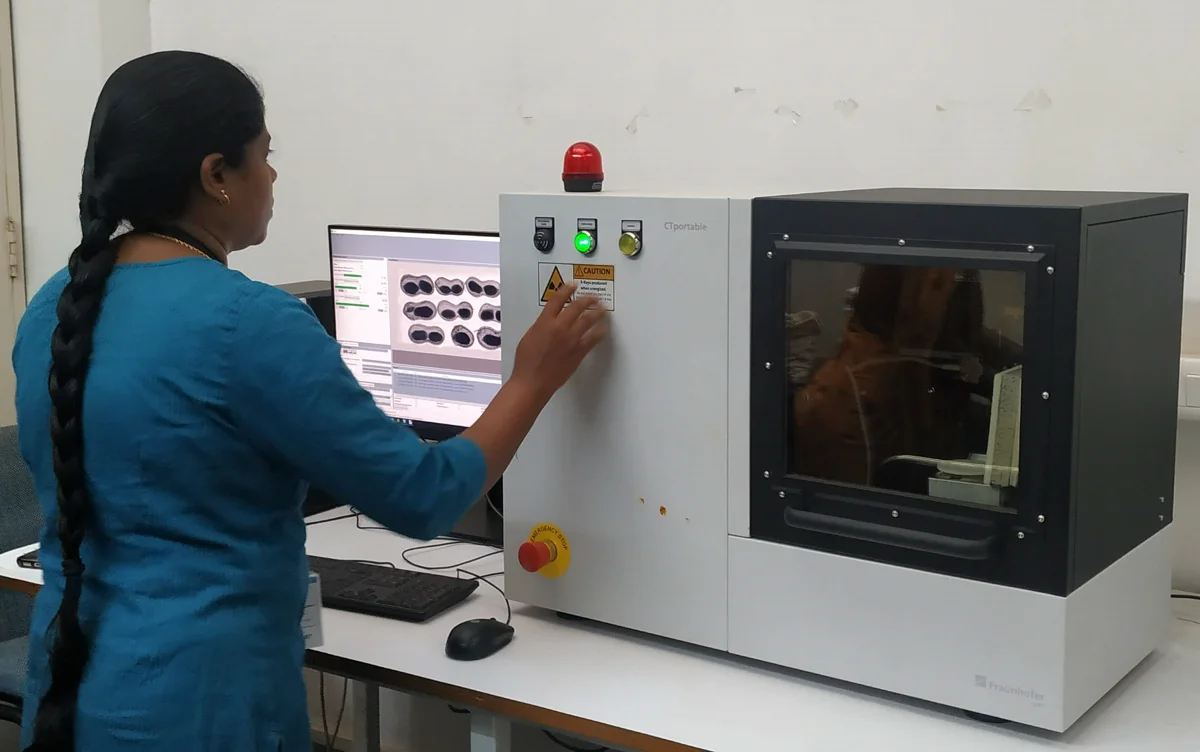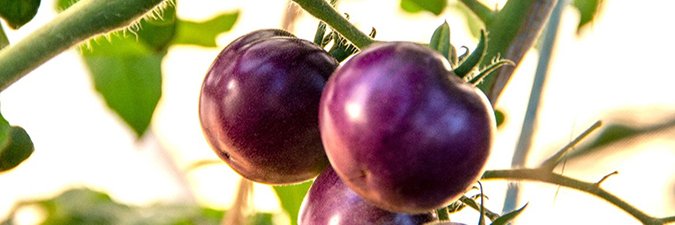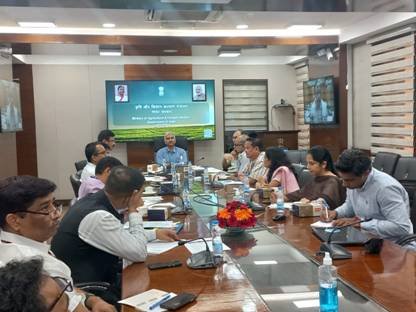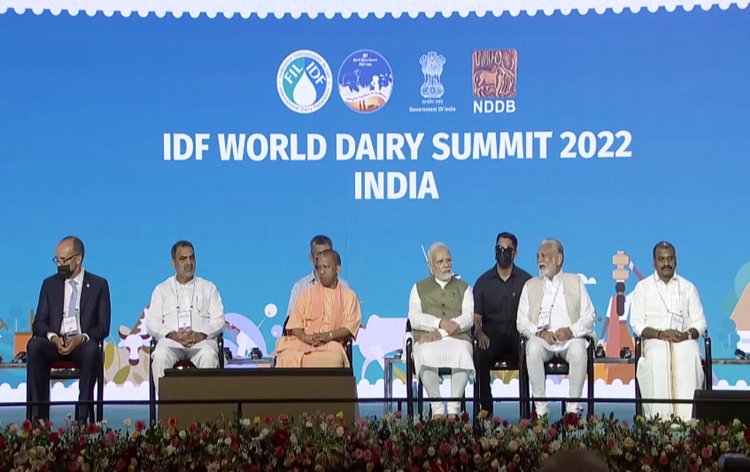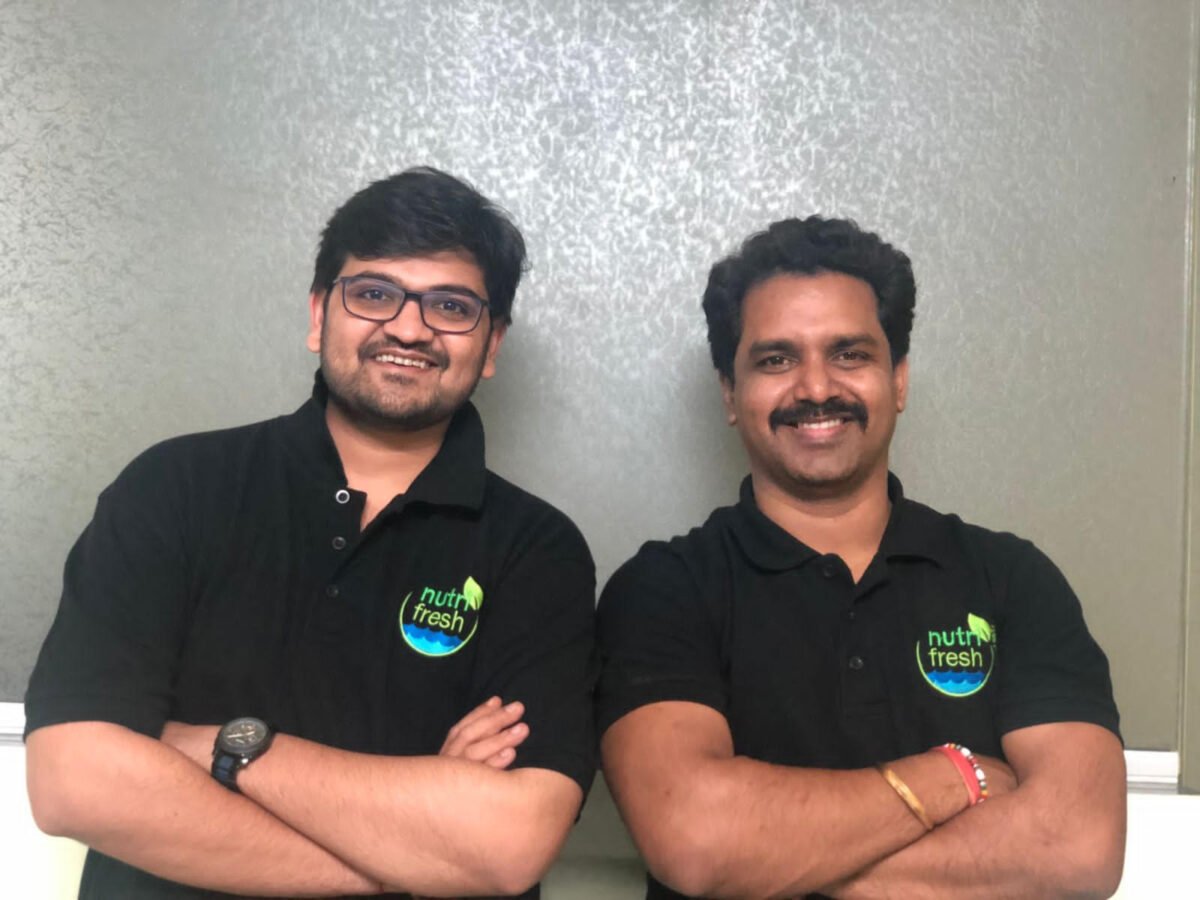According to a report by DataM Intelligence, though still nascent, Indian hydroponic market is expected to grow at a Compound Annual Growth Rate (CAGR) of 13.53 per cent between 2020-2027. In comparison, the growth in the global market is estimated at just half of it at 6.8 per cent
India Hydroponics Market Size Share Growth Opportunities and Forecast 2022 (datamintelligence.com)
AgroSpectrum India’s Sanjiv Das gets to the bottom of the hydroponic market in India in this exclusive interaction with Nutrifreshs founders Sanket Mehta and Ganesh Nikam. The duo started off their entrepreneurial journey in agriculture with water-guzzling crop sugar cane, then ventured into floriculture and now are growing veggies in Pune region using hydroponics system (reduces water usage)
Nutrifresh, a brand that symbolizes hydroponically grown fresh, clean, green residue free & chemical free produce, has brought freshly grown vegetables from state of the art facility to 5000 homes in one year. Further Nutrifresh has adopted & patronized a unique women centric mothers community called Tigressmoms in Mumbai and Pune even during the pandemic.
Nutrifresh was launched with the idea to provide Healthy, Pesticide Free and Residue Free Food to various consumers at large. The best thing available in the market was Organic Produce. At Nutrifresh Hydroponic Farm, fresh vegetables are grown in a controlled atmosphere with the help of Polyhouses & Insect Net along with RO purified Water and most importantly SOILLESS FARMING. Entire Supply chain from Farm to Fork is less than 24 Hours and Minimal or NO Hand Touch. The entire Post Harvest Practices is done by Nutrifresh Team and it is not outsourced. Due to these reasons, Nutrifresh has been able to achieve superior Quality and Freshness.
Edited excerpts:
How has been the journey of Nutrifresh’s since its inception?
Nutrifresh was launched with the idea to provide Healthy, Pesticide Free and Residue Free Food to various consumers at large. The best thing available in the market was Organic Produce. The deeper knowledge in Organic Produce leads us to believe that, “is the Produce Really Organic?” and that’s when we came across Hydroponic Farming. It is more Controlled, Précised and Traceable. Not to mention, unsolicited Consultants make the Project seem far than viable. However, with Economics of Scale, Healthy, Fresh and Nutrient Rich Exotic Fruits and Vegetables will be in everybody’s reach. At Nutrifresh Hydroponic Farm, we use Controlled Atmosphere with the help of Polyhouses & Insect Net. We use RO purified Water and most importantly SOILLESS FARMING. Entire Supply chain from Farm to Fork is less than 24 Hours and Minimal or NO Hand Touch. The entire Post Harvest Practices is done by Nutrifresh Team and it is not outsourced. Due to these reasons, Nutrifresh has been able to achieve superior Quality and Freshness. Besides, Hydroponic Farming will also help in establishing regular and steady income for Farmers. These types of Cultivations help in up scaling per unit production up to 10 times, utilizes 90% less water and entire produce is Pesticide Free.
What are the benefits and challenges faced while going in for hydroponic form growing vegetables?
Every household in Tier I, II & III cities will utilize Fresh and Hygienic Produce at one point of time. Due to its Controlled Environment and Precision Farming, dependency on monsoon is substantially reduced. Due to Staggered and Controlled Production, demand and supply of the produce can be controlled and regulated. Prices and Availability of the Vegetables will be consistent throughout. Therefore, Hydroponics Farming has dual benefit from Customers as well as Farmers side. As far as Potential of Hydroponic Fruits and Vegetables is concerned, we are still ahead of the time. However, it is not far when people will understand importance of Fresh & Nutritious Food in their daily lives. Due to the high Set up Cost in Hydroponic Farming, the cost of Produce is still high. At Nutrifresh, there is minimum or no hand touching of the vegetables and once packed at the farm, these veggies are opened at consumer’s place only.
Our operation is highly dependent upon the quality and production volume. This technique in a controlled environment is called Hydroponics. Hydroponics has many associated problems. Open field cultivation has to deal with many abiotic stresses such as varying climatic conditions followed by risks of pests and diseases from the nearby poorly maintained farms. Seed, Nutrients, Labour, and Climatic condition are the four major components that support the yield for any type of crop. A balanced proportion and quantity of these components help in producing a good yield. Out of the above-mentioned components the least we could control was the climatic condition. This is where the tech integration helped us achieve scalable growth.
What kind of techniques (tech innovations) have been implemented at your farm?
In hydroponics, an outgrowth of laboratory techniques long used by scientists, plants are grown with their roots immersed in a water solution containing necessary minerals or rooted in a sand medium kept moistened by such a solution. Soilless culture of plants is similar in principle but larger in scale. Automation Fertigation Unit details is the technique of supplying dissolved fertiliser to crops through an irrigation system. When combined with an efficient irrigation system both nutrients and water can be manipulated and managed to obtain the maximum possible yield of marketable production from a given quantity of these inputs. Technology advancements like making the entire system run on IoT, therefore, human intervention is reduced, and thus we get optimum output. Instead of using artificial lights instead of sunlight is going to be a costly affair, and the final product will not be sold at a higher price since it is made from artificial sun light.
What is your business model for the domestic market?
Our major revenue is form B2B model that is 85% and B2C is growing side, its 15%, and as a founder, is to grow the company to a financially viable business, simple. For that, initially, you might not draw a salary, or draw a minor salary depending on your cash flow. Your point of “any” amount of money is a question you have to ask yourself. If you take x amount every month, will the remaining be enough to sustain the company, after all expenses? If yes, then by all means. If no, then do the math and reiterate the salary structure.
You drawing an amount that does not sustain the company is detrimental in the long run. I speak out of experience. A founder should always look at the bigger picture and not immediate profit. Immediate profit seldom assures long term success.
What will be your investment plans for the next five years? Do you plan to venture into other states?
We are planning to capture at least 40% market share in the coming 5 years. After this, we might look upon expanding to other geographies such as Surat and Ahmedabad. Nutrifresh wants to overcome the price war and benefit from the 100% dependency after a few years. We will gradually use skimmed pricing policy for our high-quality products. We are planning to expand our model by firstly building a knowledge platform for the 42 crops we are well versed with and secondly, owning and developing agricultural lands and growing and selling the produces across.
Recently we have raised funding of USD $5 million from global investors for expanding India’s largest iconic hi-tech Hydroponic farm also, to scale up farm operations, implement complete traceability and transparency of produce, marketing and creation of an integrated Farm-tech platform.
sanjiv.das@mmactiv.com
According to a report by DataM Intelligence,


